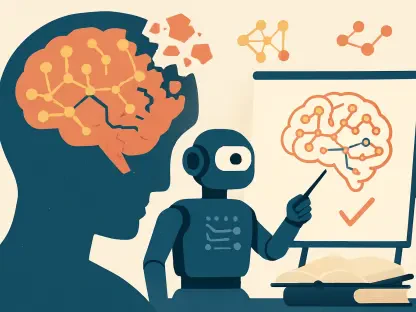In 2025, big data is experiencing a notable resurgence, reminding industries of its profound significance, particularly in tandem with the ever-growing influence of artificial intelligence (AI). With data now being referred to as “new money,” its paramount role in contemporary business activities is undeniable. The increasing necessity for high-quality, voluminous data to support generative AI has put big data back in the spotlight after a brief period of diminished novelty.
AI’s Dependence on High-Quality Data
Big data momentarily lost its luster due to its widespread adoption, but its importance has surged once again with AI’s burgeoning prominence. For AI, particularly generative models, the quality and timeliness of data are crucial determinants of success. When AI systems falter or produce erroneous outputs, often referred to as “hallucinations,” it is frequently due to their reliance on probabilistic data completion rather than a lack of cognitive function. This underscores the necessity of comprehensive, accurate data to refine and enhance AI capabilities.
Challenges of Data Availability
A significant threat to the sustainability of AI is the potential depletion of publicly available data. This concern has been voiced by experts like Andy Thurai from Constellation Research, who highlights the critical need for abundant, diverse, and trustworthy data sources. As accessible data dwindles, the significance of big data in sourcing reliable information becomes even more pronounced.
The Synergy Between AI and Big Data
Tony Baer of dbInsight offers a historical perspective on the evolution of big data and its symbiotic relationship with AI. AI and big data are intrinsically linked, with each field enhancing and complementing the other. For AI to be effectively trained and operated, it requires high-quality, validated datasets that also respect privacy and data sovereignty. This creates a pathway for developing potent AI models that can address complex problems efficiently.
Innovations in Data Solutions
Among the prevailing trends within the AI and big data paradigm is the focus on retrieval augmented generative (RAG) solutions. These solutions integrate standard databases with sophisticated language models, offering a powerful combination that bolsters AI capabilities. The AI Alliance’s Open Trusted Data Initiative signifies a collaborative effort to establish trustworthy data foundations. This initiative, backed by organizations like IBM, ServiceNow, and the Allen Institute for AI, aims to resolve issues related to data provenance, licensing, and quality.
The initiative’s goal is to amass large-scale, openly licensed datasets with clear provenance, spanning multiple domains and modalities. By improving the transparency, trustworthiness, accuracy, and applicability of such data, this initiative enhances the overall quality of AI outputs across diverse formats, including languages, images, audio, video, and scientific data.
Industry-Specific AI Models
A notable trend within the AI landscape is the movement toward developing industry-specific AI models. These models are refined using focused data sets from particular sectors, leading to superior performance within their respective domains. Examples include BloombergGPT tailored for finance, Med-PaLM2 for healthcare, and Paxton AI for legal applications. Each model benefits from training on extensive, specialized datasets, which enhances their relevance and effectiveness in addressing domain-specific challenges.
The Role of Synthetic Data
In 2025, big data is making a significant comeback, emphasizing its critical importance, especially when coupled with the ever-expanding impact of artificial intelligence (AI). Data, now termed the “new money,” has an undeniable and vital role in modern business operations. The renewed focus on big data arises from the growing need for vast amounts of high-quality data to fuel generative AI systems. This resurgence comes after a short phase where big data’s novelty seemed to wane.
As companies increasingly rely on AI to drive innovation and efficiency, the demand for robust datasets has skyrocketed. Big data’s ability to provide the necessary resources for AI algorithms ensures that businesses can make well-informed decisions, optimize operations, and ultimately gain a competitive edge in the market. The symbiotic relationship between big data and AI underscores a future where data-driven insights are paramount. Consequently, the focus on data management, storage, and analysis tools is intensifying as industries harness the power of big data for their AI-driven strategies.









